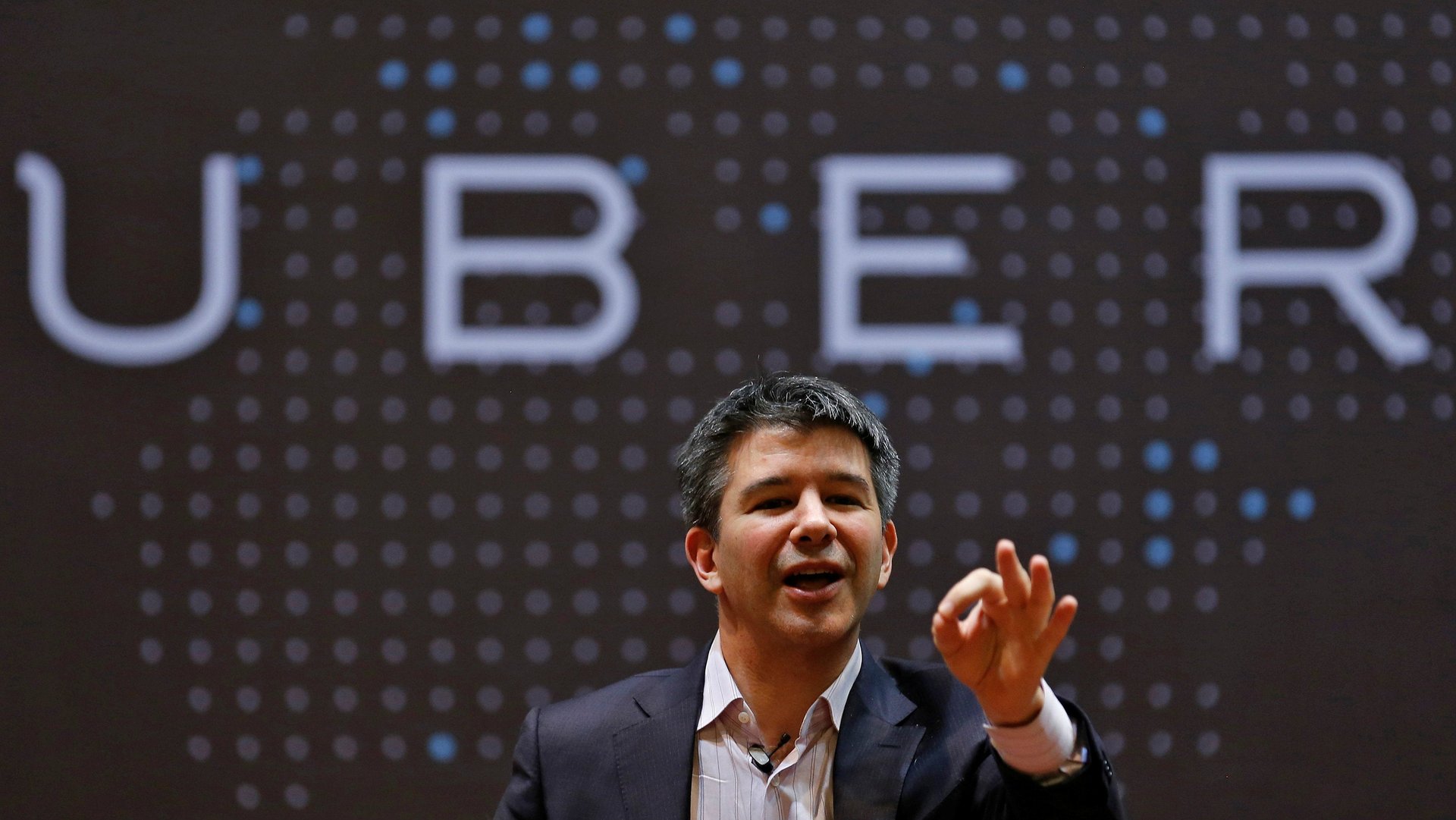Uber’s CEO needs a coach more than a Sheryl Sandberg
At the Economic Club of New York earlier this month, Airbnb CEO Brian Chesky reflected on the series of scandals surrounding Uber CEO Travis Kalanick, concluding, “we all need mentors.” He also said that any leader in crisis should “take a step back and have some humility.”


At the Economic Club of New York earlier this month, Airbnb CEO Brian Chesky reflected on the series of scandals surrounding Uber CEO Travis Kalanick, concluding, “we all need mentors.” He also said that any leader in crisis should “take a step back and have some humility.”
Roughly two weeks earlier, Kalanick did exactly that when, in a moment of rare vulnerability, he wrote a memo explaining that he needed to “fundamentally change and grow up.” He’s currently looking for a right hand as top executives head for the exits from the world’s most valuable startup.
While Kalanick’s search for a No. 2 is in response to crisis, many of Silicon Valley’s legendary leaders credit their success to collaborations—with COOs, coaches, mentors, spouses. Facebook CEO Mark Zuckerberg, for example, significantly matured as a leader once he hired an executive coach and Sheryl Sandberg joined the company from Google as COO. Zuckerberg has also cited the grounding influence of his wife, Dr. Priscilla Chan, in the same way Sandberg spoke of her late husband Dave Goldberg.
In his recent book The Upstarts, Brad Stone portrays Kalanick as a headstrong leader who doesn’t think he needs to seek out counsel. That’s how Alphabet chairman Eric Schmidt felt once, too, until he began working with the late Bill Campbell, Silicon Valley’s legendary executive coach. In a sidebar to his book How Google Works, Schmidt implored as to why “[we leaders are] so confident of ourselves that we can’t imagine someone helping us to be better? If so, this is a fallacy. As a business leader, you need a coach.” Schmidt is now writing a book about Campbell.
Whereas an advisor would offer solutions, Campbell assumed the authentic role of a coach, pushing clients to do the introspective work themselves. Kleiner Perkins partner Randy Komisar likened Campbell’s executive-coaching style to that of a psychiatrist. It’s a strategy that worked for many Silicon Valley leaders, including Steve Jobs, Jeff Bezos, Larry Page, and Sergey Brin. Venture capitalist Ben Horowitz says working through his own psychology with Campbell was “the most difficult skill for me to learn as CEO.”
Outside the Valley, executive coach Jerry Colonna has developed a following for taking his clients through a similar process of “radical self inquiry.” Like the late Campbell, Colonna is not a psychiatrist, but he walks clients through a line of questioning that helps them recognize their limiting beliefs that interfere with success. He draws from Buddhism in his approach. “It’s a process of sitting still, being honest with oneself,” he tells Quartz, adding that he only takes on clients who are willing to do the work.
Entrepreneur and executive coach Mark Rowland shares a similar philosophy in his practice. “You can’t make a person want to change.” (Yahoo CEO Marissa Mayer reportedly dismissed Campbell’s support while a rising engineer at Google, and he warned cofounder Larry Page about her “my-way-or-the-highway approach” to leadership.)
While Uber’s hiring of a Sheryl Sandberg-type could help steer the company out of controversy, the effectiveness of Kalanick’s new partnership with a COO equally depends upon him embracing the very thing that he’s resisted since the beginning: humility.